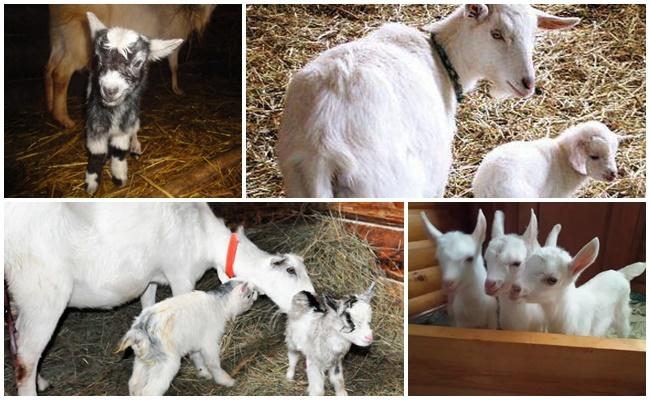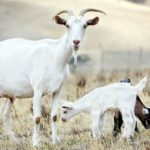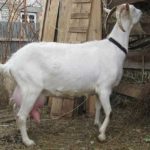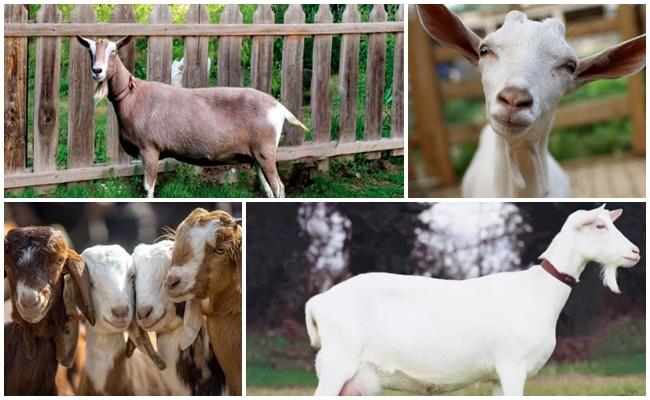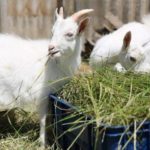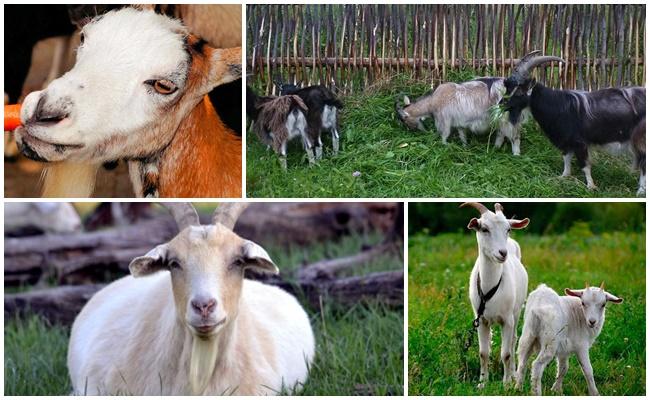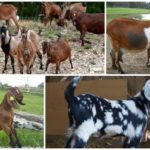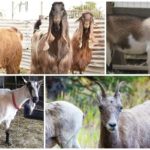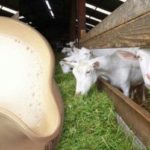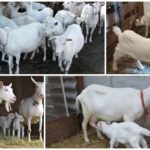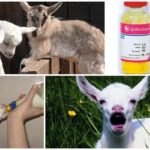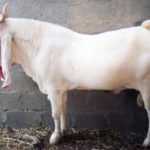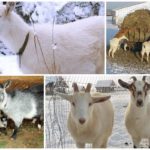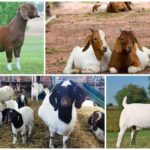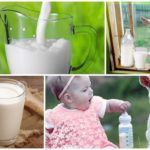It is important for farmers and owners of private household plots to know how long domestic goats live, which affects their life expectancy. After all, raising these animals costs a pretty penny. Goats need food and housing. If favorable conditions are created, they will live 15-18 years. True, the economic life of goats is slightly shorter. It is only 8-10 years.
How long do goats live?
Domestic animals such as goats are raised for milk, meat and wool.Life expectancy depends mainly on diet and living conditions. Proper feeding affects the digestive system, as well as the condition of the teeth. Healthy animals live longer than sick ones. On average, life expectancy is 15-18 years.
Meat
Oriental beef breeds (Boer, Nubian) come from southern Asia and are adapted to life in warm climates. In temperate latitudes their lifespan is 8-10 years. True, no one keeps representatives of the meat breed until this age. They are usually sent to slaughter at 8-12 months. The meat of these animals becomes tougher with age.
It is also advisable to renew breeding goats after 7-8 years of life. And in females, reproductive functions decrease with age. At the age of 8, old goats have miscarriages and non-viable or dead kids are born.
Dairy
Dairy goats, as a rule, begin to milk after the first lambing, that is, at the age of 2 years. Peak productivity occurs at 4-5 years. Then milk yield gradually decreases. It is advisable to keep dairy goats for up to 8-10 years. It could be longer. With good care and proper nutrition, these animals will live up to 15-18 years. True, old goats will give a cup of milk a day.
Mini goats
Decorative dwarf goats (Nigerian, Cameroonian) belong to dairy breeds. Such animals can live up to 20 years. These long-livers have excellent immunity and good adaptive qualities. True, the period of their economic use is no more than 10 years.
What does life expectancy depend on?
The lifespan of domestic animals depends on the person, or rather, on the conditions of detention and food. If fed properly, they will be healthy for many years.The coordinated work of all systems and organs is the key to high productivity.
Climate
Your environment influences your health and life expectancy. It is not recommended to keep these animals indoors all year round. In the warm season, it is advisable to graze them on pasture. Sunlight, lush green grass - all this strengthens the animals’ bodies and has a positive effect on their health.
Breeds with thick coats, adapted to life in regions with cool climates, will suffer from the heat in southern latitudes. On the contrary, representatives of Asian or African species will often become ill in places with short, rainy summers and harsh winters. It is better to get a breed that has been bred in its native area for a long time.
Heat-loving breeds in cold latitudes will have to be kept indoors for 9 months. In favorable home conditions, even goats that are atypical for a given region can live 10-20 years.
Conditions of detention
Goats are domestic animals that need to be provided with all the conditions for life. Before you get them, you need to take care of the barn and think through all the nuances of feeding. They must graze on pasture in the summer and be kept in a special housing facility in the winter. It is advisable to cover females once a year and milk them 2 times a day.
The barn should always be dry and clean. The optimal temperature for keeping these animals is 10-20 degrees Celsius all year round. If animals are kept in the cold, in dirt and dampness, then even representatives of the local and most hardened breeds will not live long. Goats are susceptible to various colds and infectious diseases.At 3 months of age, goat kids need vaccination to protect them from dangerous diseases. In favorable conditions, a goat lives about 15-18 years.
Nutrition
Health and life expectancy, of course, depend on the quality and quantity of food. The more complete the nutrition, the better the animal’s condition. Goats should receive the full range of nutrients, vitamins and minerals. Animal productivity depends on the quality of feed.
True, when creating a menu for your ward, you need to pay attention to one important nuance.
The health and productivity of goats, especially dairy goats, depends on the condition of their teeth. Animals have 32 of them. Moreover, there are 24 molars, and only 8 incisors, and they are all located on the lower jaw. First, baby goats grow baby teeth. Up to 4 years they are replaced by permanent ones. It is advisable to take care of these teeth. After all, the longer they are preserved, the better the goat will eat, that is, eat more. As is known, the health and life expectancy of animals depends on nutrition.
Goats that eat soft feed live a long time. Their teeth simply wear out and wear down more slowly. In addition, soft foods (fresh grass, finely chopped vegetables) are more beneficial for the body. If animals retain all their teeth, they will live 20 years. If goats are kept on roughage, the picture is sadder. It happens that at the age of 8, females lose their teeth. Of course, such animals will not be able to chew food normally, which means they will eat less and give little milk. As soon as the females’ teeth begin to deteriorate, they must immediately be replaced with younger individuals.
Is it possible to extend the deadline?
The lifespan of an animal depends on its health. The better the condition and well-being of the goat, the longer it will live.Health is influenced by a number of factors: quality of feed, region of residence, living conditions.
What prolongs the life of goats:
- mandatory vaccination of young animals at the age of 3 months;
- food that is soft for teeth (meadow or forest young grass, fine hay, grated vegetables);
- pharmacy vitamins and minerals;
- milk feeding of young animals up to 3 months;
- spruce and pine branches in winter;
- clean water for drinking (at least 5 liters per individual);
- grazing on fenced and clean pasture;
- no contact with sick animals;
- timely (early stages) treatment of diseases;
- keeping in a warm, dry and clean barn;
- measures to prevent stress and anxiety in animals.
Goats will live longer if they are fed the optimal amount of feed regularly. You cannot keep them on a starvation diet or, conversely, overfeed them. In the summer, after dew, they need to be grazed in the meadow. In rainy weather, animals should stay in the barn. In winter, it is necessary to feed them with hay from young meadow and forest grasses. Rough feed (grain, tree branches) is given to goats in minimal quantities. Instead of brooms in winter, it is better to feed them with dried leaves of bushes and trees.
What reduces the lifespan of a goat?
Diseases affect the lifespan of animals. Sick goats, if left untreated, do not live long. Most often, animals suffer from colds, gastrointestinal diseases, and mastitis. For prevention purposes, it is advisable not to take goats out to pasture in the rain; in winter, they should be kept indoors.
Stomach diseases occur due to improper feeding and poor quality feed. Mastitis is a disease that can be prevented if you donate milk in a timely manner and change dirty litter daily.True, with age, the health and productivity of any animal becomes worse. Usually goats are kept for no more than 8-10 years, and then they are replaced by young individuals.

